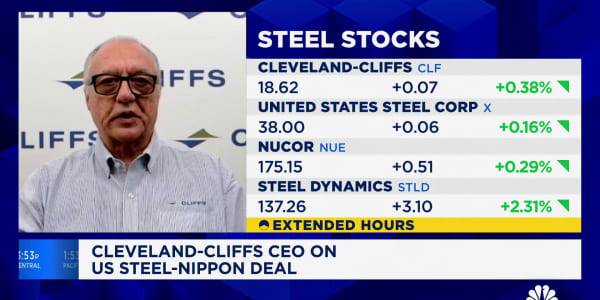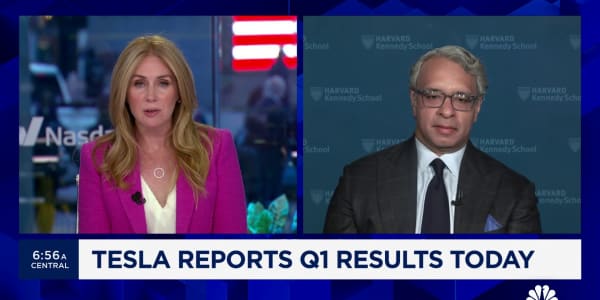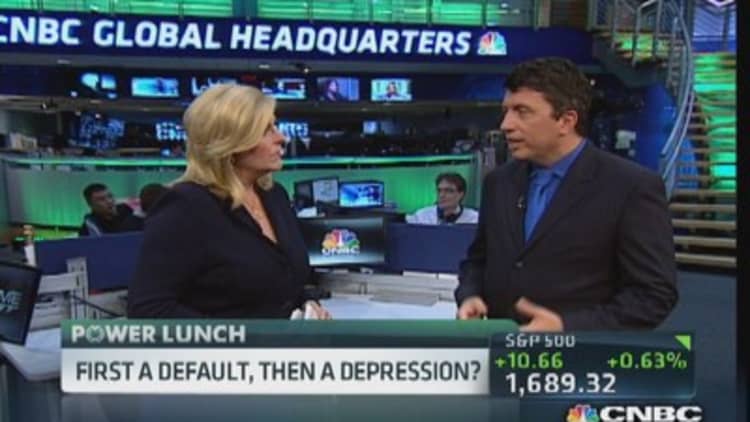
Washington's efforts to scare Wall Street haven't come to much so far.
The message hardly could be clearer from the Obama administration: An impasse over approving a continuing resolution that would keep government going threatens to morph into a crippling battle over the debt ceiling.
Wall Street should be petrified of such an occurrence and is taking the looming crisis too lightly, President Barack Obama told CNBC in an interview Wednesday.
In a statement Friday, Treasury Secretary Jack Lew warned that Social Security recipients, disabled veterans and those on Medicare and food stamps face peril if the debt ceiling deal doesn't get done.
Oh, and Wall Street should be worried, too, he said.
(Read more: First a default, then a depression? Some think so)
"The stock market, including investments in retirement accounts, could tumble, and it could become more expensive for Americans to buy a car, own a home and open a small business," Lew said. "We cannot put our nation in the position of not paying its bills because Congress has refused to raise the country's debt limit."
Markets haven't bitten, however.
Stocks have been a mixed bag this week, with the Dow industrials and creeping lower and the Nasdaq higher.
Perhaps more importantly, however, bonds have barely budged.
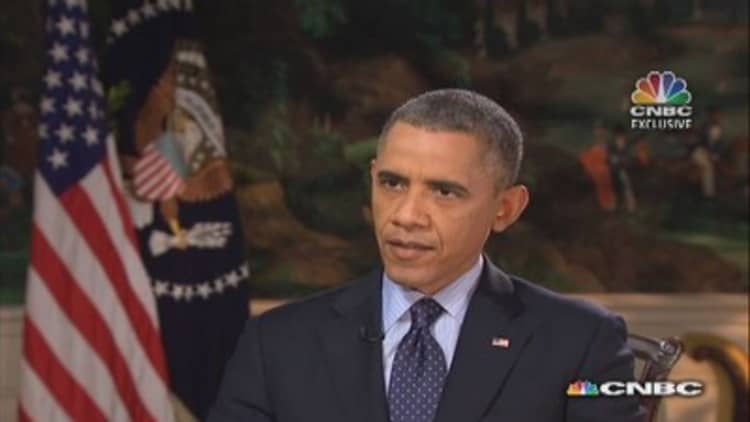
The 10-year yield—considered a benchmark for the bond trade—actually is a few basis points lower since the shutdown began.
(Read more: Cramer: Stock market could get very ugly)
"Take a look at yields on 10-year Treasuries," Nick Raich, CEO at The Earnings Scout and formerly of Key Private Bank, said in a report Friday. "They have been falling ever since the Fed decided not to taper. If bond investors really did not believe they would get their money back from the U.S., they would be selling their bonds left and right causing yield(s) to skyrocket."
To be sure, credit-default swaps—used to protect against U.S. debt default—have risen this week.
And there was a hiccup in an auction of four-week notes, with the yield going from near-zero to 0.12 percent on fears of short-term redemption problems.
But, overall, Wall Street has refused to take the bait from an administration that has been peddling fear aggressively for the past several days.
(Read more: Get out the rally hats: Shutdowns are bullish!)
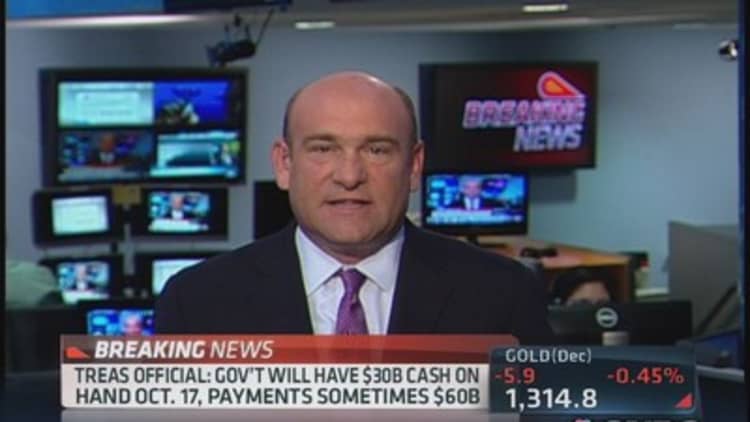
"I think we get it resolved," Kim Rupert, managing director of global fixed income analysis for Action Economics in San Francisco, said of the debt ceiling issue. "The experience from two years ago (during the last debt ceiling debate) wasn't very helpful, but the fact that we came through virtually unscathed has lessened the fear at this point."
Reaction elsewhere on Wall Street has been more vitriolic.
Hedge fund manager Keith McCullough, at Hedgeye Risk Management, called the default rhetoric "shameful" and said the market is ignoring Washington.
"Lew should be ashamed for spewing this fear-mongering nonsense," McCullough said in a blog post. "As for the Bond Market...It doesn't believe a single word from these guys on default risk. Otherwise yields would be ripping."
(Read more: Wall St. wonders if Obama wants 'severe' selloff)
The Federal Reserve does appear to be paying attention.
Some pros believe one of the reasons the U.S. central bank, at its September meeting, decided against reducing the amount of its monthly bond purchases was because of the uncertainty in Washington.
With monetary policy taking such a central place in market behavior, and the Fed unlikely to taper, the White House may have a rough time in trying to move the market needle.
—By CNBC's Jeff Cox. Follow him on Twitter @JeffCoxCNBCcom.




